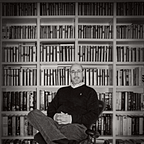The Wisdom of George Carlin
George Carlin (1937–2008) was an American original. Love him or hate him, he was one of the most influential comedians of all time. In their list of the 100 greatest stand-up comedians of all time, Comedy Central ranked Carlin number two (Richard Pryor was ranked first). In 2008, Carlin was posthumously awarded one of comedy’s highest honors: the Mark Twain Prize for American Humor.
Carlin was the thinking person’s comedian — his razor-sharp, incisive rants about politics, culture, religion, philosophy, and language were not only funny, they were compelling and thought-provoking. Long after watching a Carlin performance, you actually remembered what he had to say because in most cases he was right — the world is messed up (not his exact words, if you know what I mean).
Like Twain, Carlin was a fearless critic always ready and willing to speak his mind — passionately and eloquently; and, in the case of his notorious “Seven Dirty Words” routine — with great vulgarity (much to the consternation of the FCC). Although Carlin had a brilliant sense of humor, he took his role as social critic very seriously: “They say underneath a cynic is a disappointed idealist,” he said in an interview. “And that is what I am. And that flame can be rekindled, no doubt. But I’d rather take the comfort of the skeptic’s role and say, ‘You worry about it. I’ve got a job, and my job is making fun of it and showing people how badly they are doing.’” And when you hear Carlin’s words, you realize just how very relevant he is in the topsy-turvy Trumpian world. Here are excerpts of Carlin speaking his mind, in his inimitable way, during an interview in 2004.
On freedom of choice: “Yes, you can [vote for president], but you don’t get much choice in this country about important things. They have all the guns. They have all the tools. They have all the power. We call it freedom of choice. There is an illusion of choice. Americans are led to feel free through the exercise of meaningless choices. There are only two political parties. There is a reduction of the number of media companies. Banking has been reduced to only a handful of banks. Oil companies. These are important, and you’re given very little choice. Oh, but the flavor of jellybeans? The flavor of muffins? A bagel? You can get a Pina Colada bagel. We’re given the illusion of choice by the meaningless of choices of trivial things. You know what your freedom of choice in America is? Paper or plastic, buddy? That’s it. After you’ve said cash or charge, maybe it’s Pepsi or Coke? Window or Aisle? Smoking or [Nonsmoking]?. Everything else you’re kinda guided towards by focus groups and marketing research.”
On the state of the country: “This country is a freak show. It’s circling the drain. This culture has been, for some time and the circles are getting smaller and tighter and faster. And I revel in it. I am a critic of it all because I think it’s a fascinating drama in self-destruction.”
On the government’s response to terrorism: “The events in downtown Manhattan [911] created this Patriot Act, which was rushed through and puts the Bill of Rights in further shreds — beyond what had already been done to it. And there is a faction of the ‘ownership class’ in this country that would like to restrict all of our liberties. They need to make us free enough to go to the mall and buy their garbage. But pin us down and lock us down enough so that we are controllable. Fascism always does that. The excuse is that there is an enemy that we all have to line up against. Terrorism has created this climate. The psychological atmosphere around is permeated with these fears and quick solutions.
On the gradual erosion of civil liberties: “People don’t believe that because everybody wants a jet ski. It’s all about the pursuit of goods and acquisition. This country has become a nation of people selling each other cheeseburgers and sneakers. It’s an appalling degradation. They call it the American Dream. Why? Because you have to be asleep to believe in it.”
On improving the world: “The way the world operates, anyone who told us that it was good to treat each other nicely was killed. Jesus Christ, Gandhi, Lincoln, Martin Luther King, The Kennedy Brothers. If you told people, ‘Be nice to each other,’ that was the end of you.”
On how he wants to be remembered: “I want to be remembered as having a large output of work that got increasingly better. My epitaph should say: ‘He was here a minute ago. Where did he go to? He was just here.’”
____________________
If you enjoyed this: I write at Atkins Bookshelf, the blog that explores the world of ideas — through books, movies, music, quotations, and the English language — for the intellectually curious. The goal of Bookshelf is to educate, entertain, and inspire. At the heart of Bookshelf is a lifelong love of books and literature. Join here: https://atkinsbookshelf.wordpress.com
